We kick our 2019 with a return to narrative history, hearing about a terrible way to die and how not to profit off the deaths of others during a plague from William of Malmesbury’s Gesta Regum Anglorum, and we also look all the way back to the first book of Samuel to learn how to rid oneself of some particularly uncomfortable plagues from God. We also discover how Raiders of the Lost Ark should have ended.
Today’s Texts:
- William of Malmesbury. Chronicle of the Kings of England. Edited by J.A. Giles, translated by John Sharpe and J.A. Giles, George Bell & Sons, 1895. Google Books.
- Wycliffe, John and John Purvey. Wycliffe’s Bible: A Modern-Spelling Version of the 14th-Century Middle English Translation. Edited and translated by Terence P. Noble, Createspace, 2012.
References:
- Drummond, David. Mouse Traps: A Quick Scamper through their Long History. North American Trap Collectors Association, 2005.
- Farber, Zev. “Unspoken Hemorrhoids: Making the Torah Reading Polite.” TheTorah.com,https://thetorah.com/unspoken-hemorrhoids-making-the-torah-reading-polite/.
- Kiser, Lisa J. “Resident Aliens: The Literary Ecology of Medieval Mice.” Truth and Tales: Cultural Mobility and Medieval Media, edited by Fiona Somerset and Nicholas Watson, Ohio State UP, 2015, pp. 151-167. Academia.edu, www.academia.edu/11171687/Resident_Aliens_The_Literary_Ecology_of_Medieval_Mice.
Image: Detail of an illustration of the plague of mice afflicting the Philistines (1 Samuel 5) from Morgan Library MS M.638 fol. 21v (13th cent.)
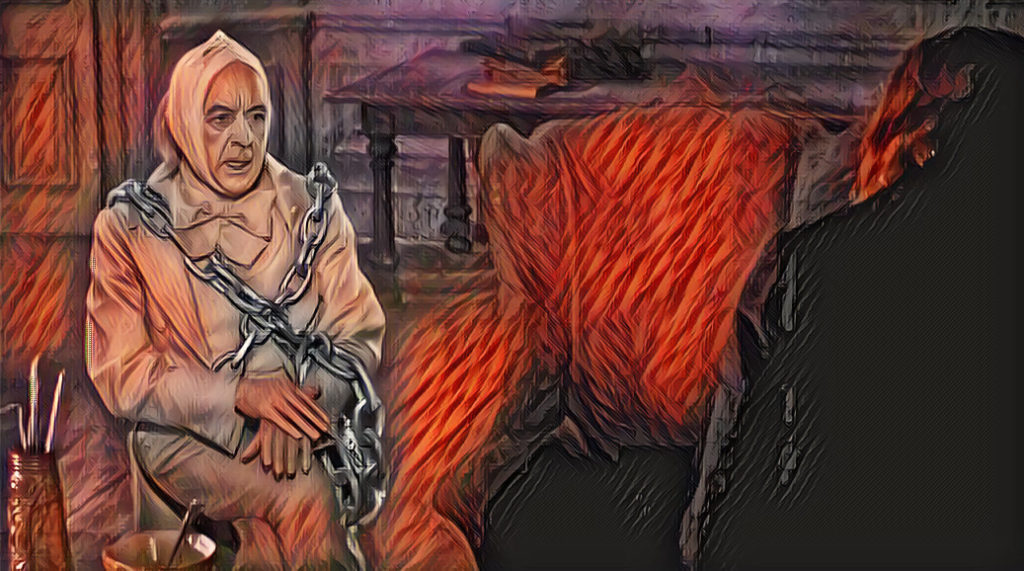
This Christmas Eve episode, we take a look a medieval forebear of the Ghost of Jacob Marley, as well as a role-model from ancient Rome.
Today’s Texts:
-
William of Malmesbury.
Chronicle of the Kings of England. Ed. J.A. Giles. Trans. John Sharpe and J.A. Giles. London: George Bell & Sons, 1895.
Google Books.
-
Pliny the Younger.
Letters. Translated by William Melmoth, revised by F.C.T. Bosanquet, The Harvard Classics, vol. 9, part 4, .F. Collier & Son, 1909–14. Bartleby,
http://www.bartleby.com/9/4/1083.html.
- Dickens, Charles. A Christmas Carol, in Prose, Being a Ghost Story of Christmas. 1843. Project Gutenberg, www.gutenberg.org/files/46/46-h/46-h.htm.
References:
- Belsey, Catherine. “Shakespeare’s Sad Tale for Winter: Hamlet and the Tradition of Fireside Ghost Stories.” Shakespeare Quarterly, vol. 61, no. 1, Spring 2010, pp. 1-27. JSTOR, www.jstor.org/stable/40731136.
- Bennett, Gillian. “‘Alas, Poor Ghost!’ Case Studies in the History of Ghosts and Visitations.” Chapter 5. Alas Poor Ghost, UP of of Colorado and Utah State UP, 1999, pp. 139-172. JSTOR, www.jstor.org/stable/j.ctt46nwwn.8.
- Rife, J. Merle. “Marley’s Ghost in Athens.” The Classical Journal, vol. 34, no. 1, Oct. 1938, pp. 42-43. JSTOR, www.jstor.org/stable/3291010.
Image: Alec Guinness as Jacob Marley in Scrooge (1970), as stylized by Google Deep Dream.
This episode as school breaks for the holidays, we look at one account of the life of translator, philosopher, and part-time court comedian John Scotus Eriugena, who allegedly met a rather bad end at the hands of disgruntled students.
Today’s Texts:
- Roger de Hoveden. Annals of Roger de Hoveden. Translated by Henry T. Riley, vol. 1, H.G. Bohn, 1853. Google Books.
- Jacobus de Voragine. The Golden Legend, or Lives of the Saints. Translated by William Caxton, edited by F.S. Ellis, J.M. Dent, 1900. Google Books.
References:
- Carabine, Deirdre. John Scottus Eriugena. Oxford UP, 2000.
- Dionysius the Areopagite. The Works of Dionysius the Areopagite. Translated by John Parker, James Parker and Co., 1897. Google Books.
- Nerney, Denis S. “Iohannes Scottus Eriugena.” Studies: An Irish Quarterly Review, vol. 24, no. 95, Sept. 1935, pp. 415-432. JSTOR, www.jstor.org/stable/30097229.
Image: 17th-century etching of the martyrdom of St. Cassian of Imola by Jan Luyken (Wikipedia).
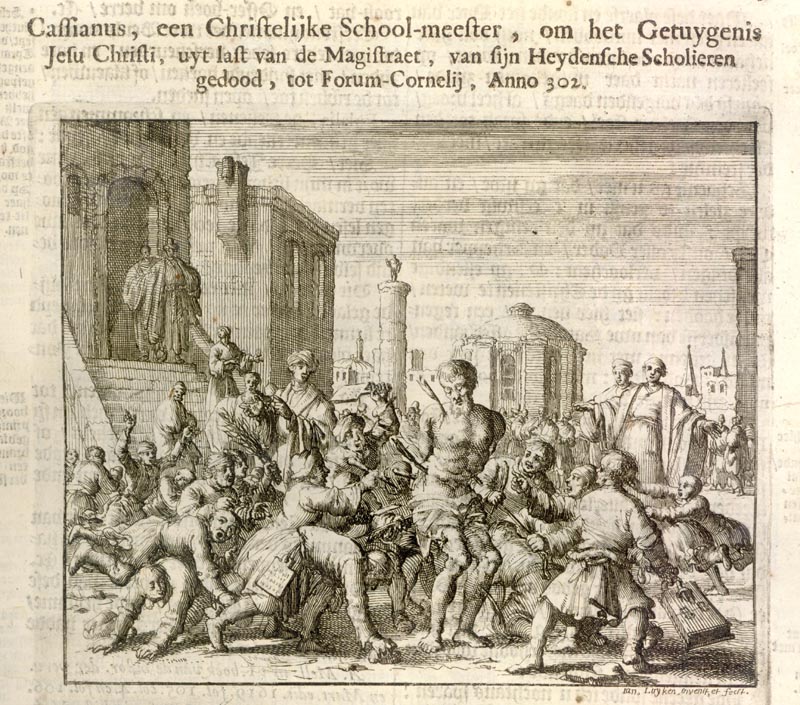
On this episode, get a different version of the story of Edgar’s love for the married Aelfthryth, this time in a blending of history with courtly romance from Gaimar’s
L’Estoire des Engleis.
Today’s Text:
- Gaimar. Gaimar. In The Church Historians of England. Vol. 2, Part 2. Ed. and Trans. Joseph Stevenson. London: Seeleys, 1854. [Available through Google Books.]
- William of Malmesbury. Chronicle of the Kings of England. Ed. J.A. Giles. Trans. John Sharpe and J.A. Giles. London: George Bell & Sons, 1895. [Available at Google Books.]
- Bartholomaeus Anglicus. De proprietatibus rerum. Ed. Robert Steele. Trans. John Trevisa. At The Medieval Bestiary.
References:
- Gransden, Antonia. Historical Writing in England. Ithaca: Cornell UP, 1974.
- Bell, A. “Gaimar and the Edgar-Ælfðryð Story.” Modern Language Review 21.3 (July 1926): 278-287.
- Bell, Alexander. “Gaimar as Pioneer.” Romania 97 (1976): 462-80.
- Press, A.R. “The Precocious Courtesy of Geoffrey Gaimar.” Court and Poet. Ed. Glyn S. Burgess. Liverpool: Francis Cairns, 1981. 267-276.
Image: Museum Meermanno, MMW, 10 B 25, Folio 37r (via The Medieval Bestiary)
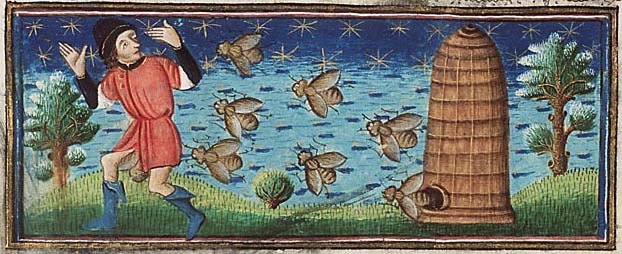
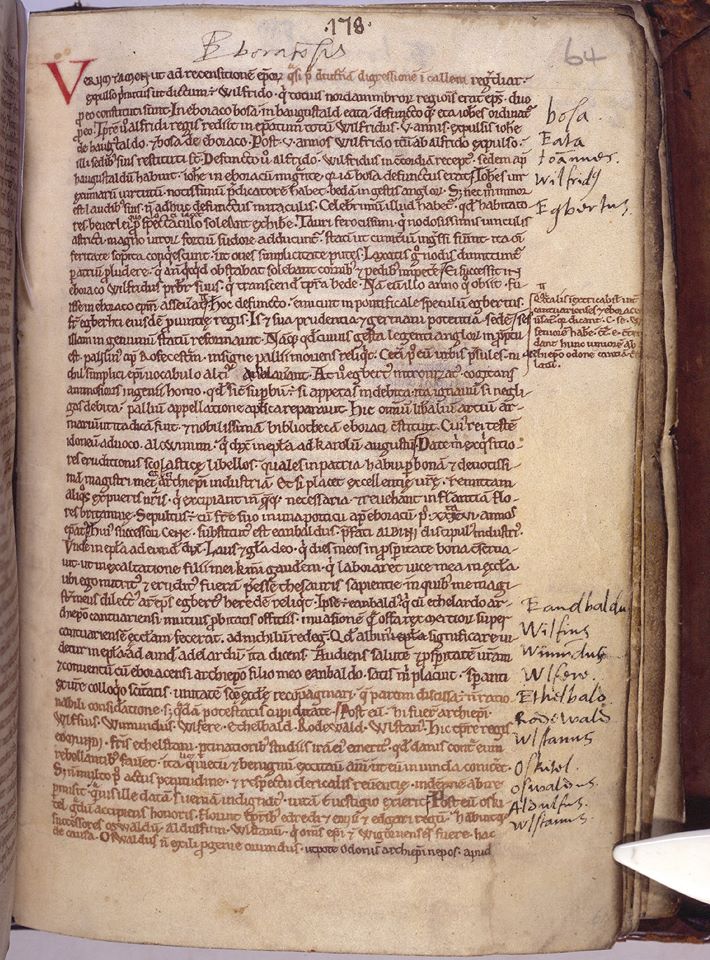
On this episode, we take one more step backwards in history from last time and look at some scandalous behavior from King Edgar the Peaceful as described by William of Malmesbury.
Today’s Text:
- William of Malmesbury. Chronicle of the Kings of England. Ed. J.A. Giles. Trans. John Sharpe and J.A. Giles. London: George Bell & Sons, 1895. (Available at Google Books.
- The Anglo-Saxon Chronicle. Trans. E.E.C. Gomme. London: George Bell and Sons, 1909. [Available through Google Books.]
- Herodotus. The Histories. Trans. Aubrey de Sélincourt. Rev. by John M. Marincola. New York: Penguin, 1972.
References:
- Gransden, Antonia. Historical Writing in England. Ithaca: Cornell UP, 1974.
Image: Manuscript leaf of William of Malmebury’s traveling copy of his Gesta Pontificum Anglorum in his own hand. (Oxford Magdalen MS lat. 172.)
On this episode, we look at one moment in history from three different sources — the deaths of King Edgar and his short-reigned heir, Edward the Martyr. Stay tuned to the very end for the new riddle!
Today’s Texts:
- The Melrose Chronicle. In The Church Historians of England. Vol. IV, Part I. Ed. and Trans. Joseph Stevenson. London: Seeley’s, 1856. 347-384. [Available through Google Books.]
- The Anglo-Saxon Chronicle. Trans. E.E.C. Gomme. London: George Bell and Sons, 1909. [Available through Google Books.]
- William of Malmesbury. Chronicle of the Kings of England. Ed. J.A. Giles. Trans. John Sharpe and J.A. Giles. London: George Bell & Sons, 1895. [Available through Google Books].
Image: The Murder of Edward the Martyr, from British Library MS Royal 2 B VII, f.245.
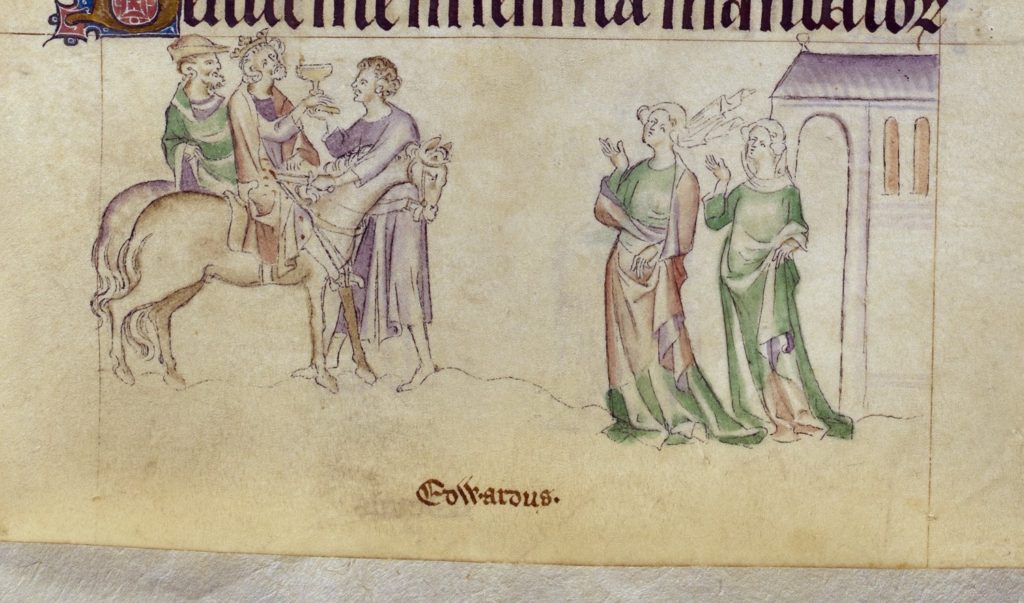
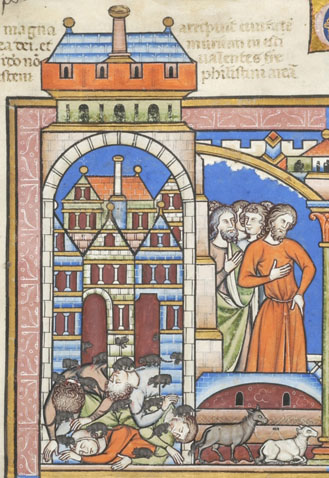








Recent Comments